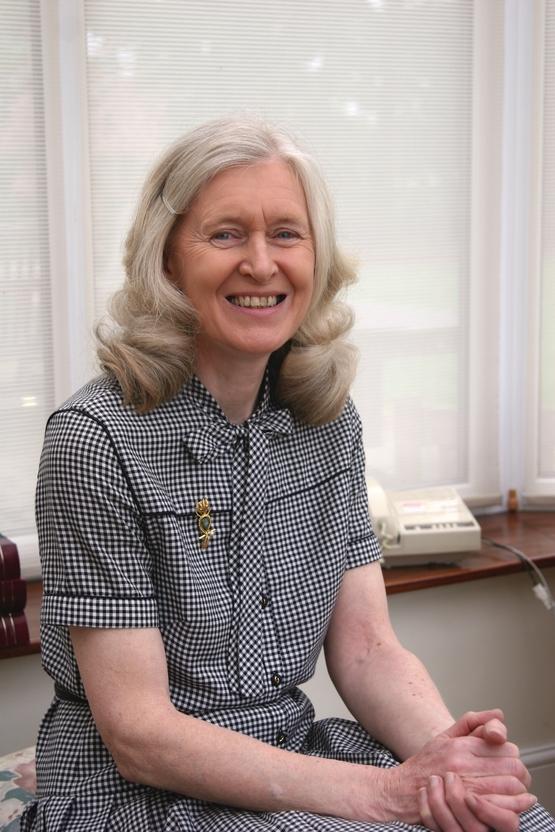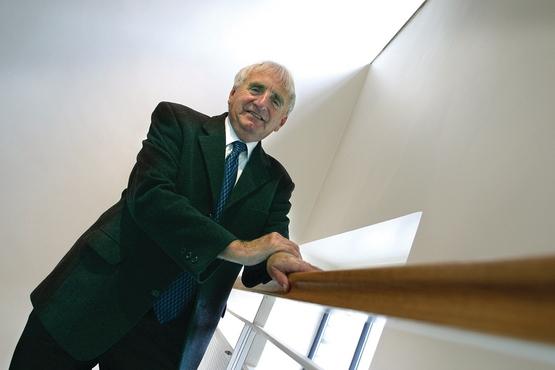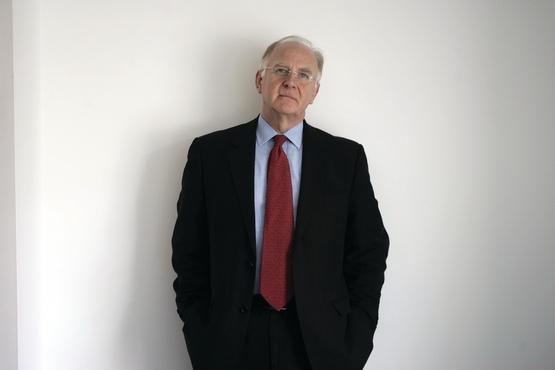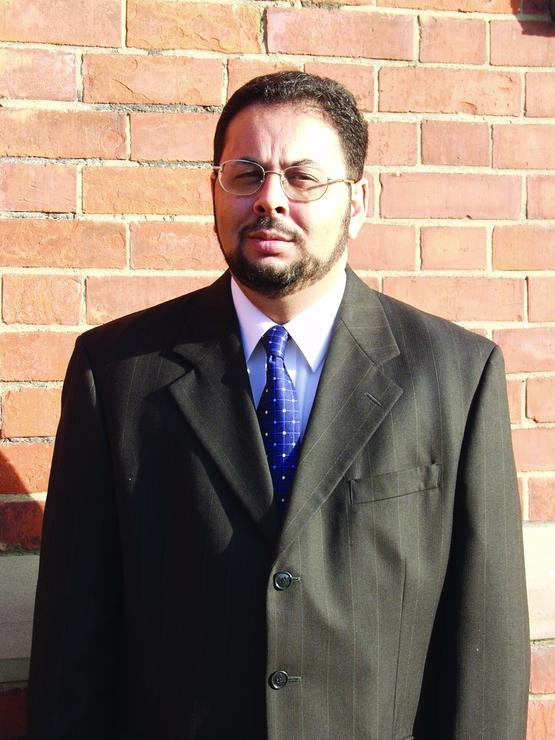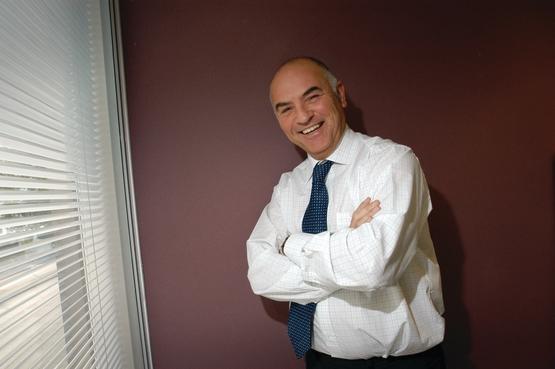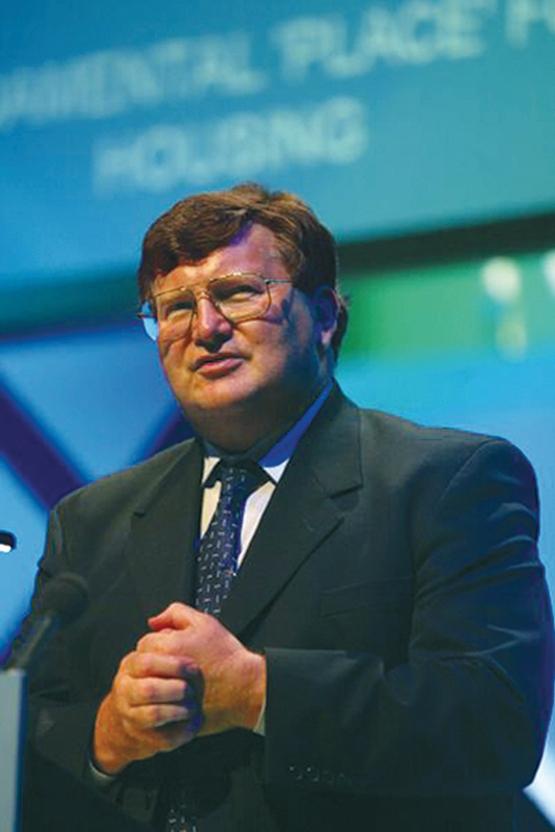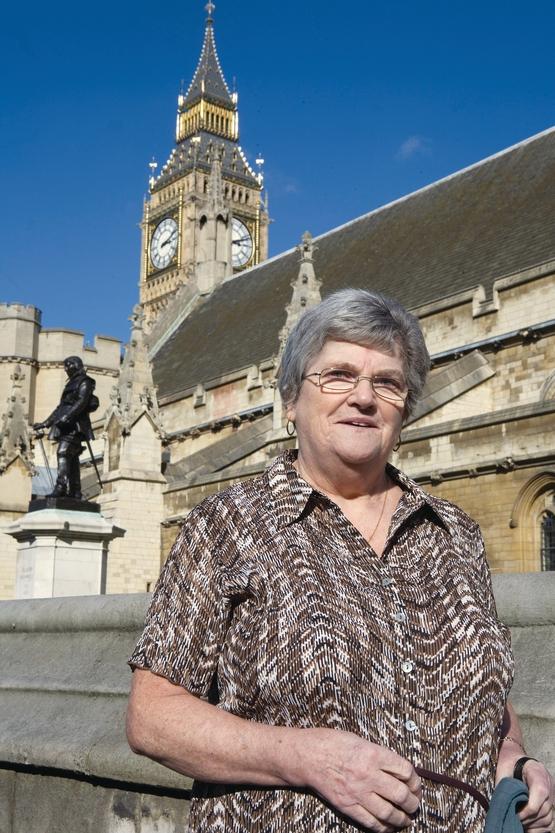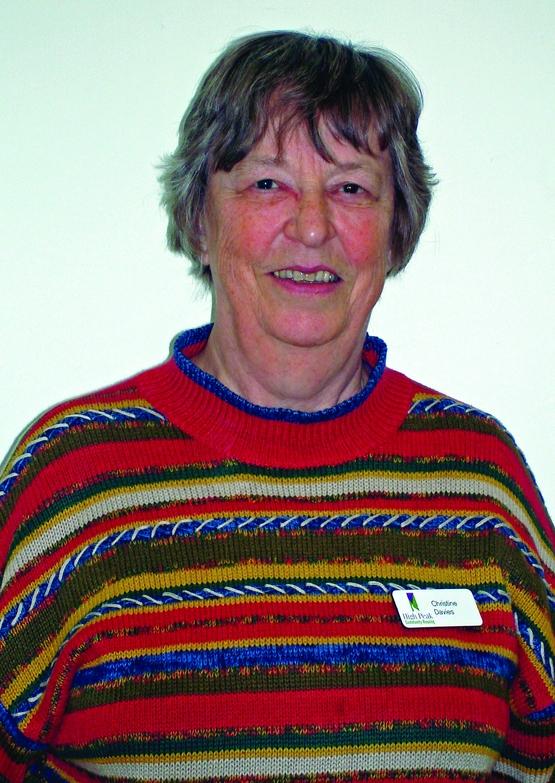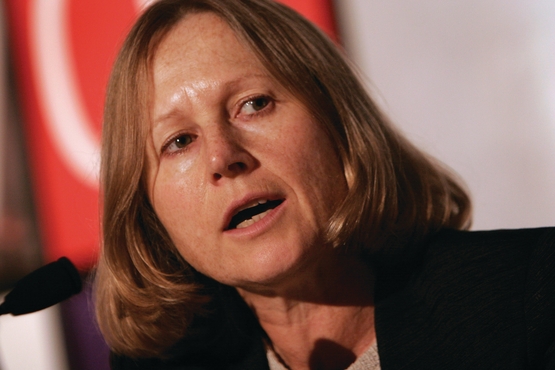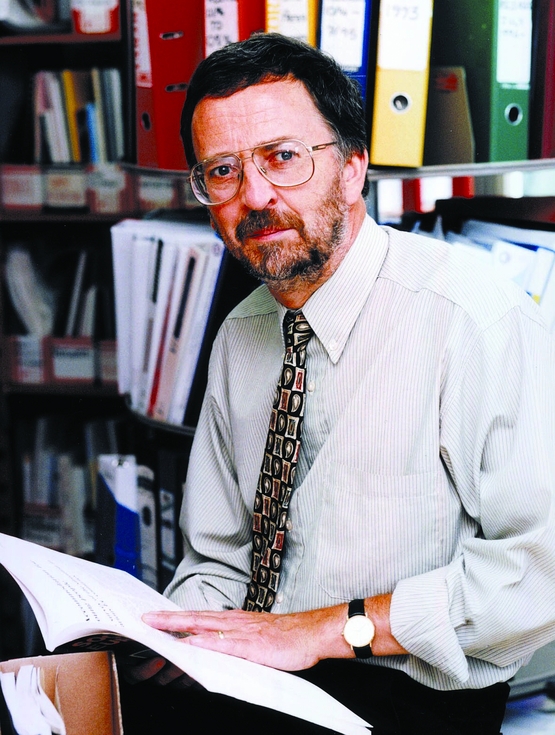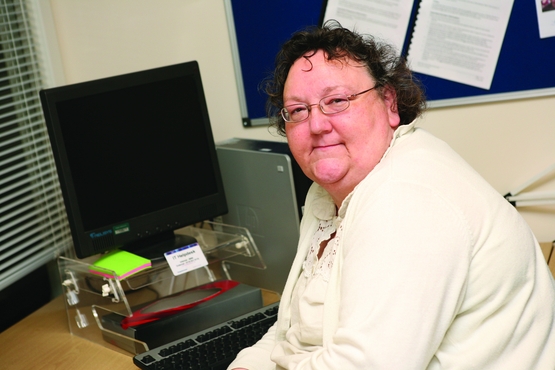Hall of fame
To celebrate Inside Housing’s silver jubilee, we asked a panel of experts to put the 25 people who have influenced the sector most over the last quarter of a century in the frame
The panel
- Terrie Alafat, director of housing (delivery and homelessness), Communities and Local Government department
- Ruth Davison, director of campaigns and neighbourhoods, National Housing Federation
- Steve Douglas, former chief executive of the Housing Corporation
- Keith Jenkins, partner, Winckworth Sherwood
- Mavis McDonald, former permanent secretary at the Office of the Deputy Prime Minister, now retired
- Bill Payne, chief executive, Metropolitan Housing Partnership
- James Tickell, director, Campbell Tickell
The list
Lord Adebowale
‘What the last 25 years in housing tells me is that everything changes and everything stays the same,’ says Victor Adebowale.
But he has done his best to make sure that things change for the better.
Now chief executive of social care charity Turning Point, Lord Abebowale has worked for housing associations Patchwork and Ujima, and was chief executive of homelessness charity Centrepoint.
All of which helps to explain why he is pretty negative about the present state of housing.
‘The thing that amazes me is how brilliantly uninspiring it has been for those in housing need,’ he says.
‘We are still dealing with the same challenges that we were dealing with 25 years ago, but using more spangly language.’
Jonathan Adlington
The only lawyer in the list, Jonathan Adlington ‘has made deals work that must have housed thousands’, reckons one of our panel.
Mr Adlington started at law firm Trowers & Hamlins in 1971 and became involved in social housing after the 1974 act. He drafted the original shared ownership lease in the 1980s, handled the first three large scale voluntary transfers, and worked on the sale of the Housing Corporation’s loan book in 1986/87.
Next on his list is selling the idea of affordable housing to the Middle East. ‘The structures here are such a huge [achievement] - the alliance of government, public and private sector is an unsung success.’ If he can get affordable housing on the ground there, then the 59-year-old might think about retiring. ‘Then I’ll go and sail my boat,’ he says.
Julian Ashby
Julian Ashby was deputy director of Circle 33 Housing Trust in the late 1970s, when the Housing Corporation asked him to help sort out an association that was off the rails. ‘It was in a lot of financial trouble, and some political trouble,’ he recalls. The rescue launched his 30-year career as one of the sector’s top trouble-shooters.
Over the years he has conducted four statutory inquiries and been at the centre of countless investigations and rescues - including, most recently, that of Ujima Housing Association.
When Martin Cave conducted his review of social housing regulation, which led to the creation of the Tenant Services Authority, Mr Ashby served as independent social housing advisor to the review. He is so supportive of the report’s conclusions that he has given up his career in social housing consultancy, to serve on the TSA board. ‘I really want to see the concept turned into reality,’ he says.
John Bader
John Bader’s proudest achievement, ‘other than managing to stay in housing for 43 years’, is the introduction and political acceptance of the Welsh housing quality standard. Brought in while he was director of housing at the assembly, it set the bar higher than its English equivalent, decent homes, helping set the new Welsh Assembly Government apart on housing.
The fruits of his 27 years at Newport Council, where he went from trainee to head of housing and architectural services, are still making a difference. ‘We built the first extra-care scheme in Wales, in 1988 - and it is still operating to high standards.’
Mr Bader is also proud of his part in the national housing strategy for Wales in 2001, especially the massive amounts of consultation invested in it.
But I wish we had more resources to do more policy development - I’d like to have been able to go further quicker,’ he says.
Eric Armitage
When Eric Armitage joined North British Housing Association (now Places for People) as finance controller in 1973, it had about 1,000 homes.
hen he resigned as chief executive 24 years later, it had 40,000. ‘We saw ourselves very much as a force for good - sometimes with the emphasis on force as much as good,’ he explains.
Since then, he has also been chair of the National Federation of Housing Associations and deputy chair of the Housing Corporation. Described by one of our judges as being ‘a good egg and all that’s best about Methodism’, it is his sunny and generous character as much as his dedication to the sector that people remember. Today, at 76, he still sits on several association boards, and is chair of Homeless International.
John Bird
John Bird’s London mayoral ambitions ended, he says, when he realised he’d have to spend too much time explaining why the trains weren’t running. ‘I’m not an apologist,’ he says. ‘So I left the road open for Boris.’
At the moment he is ‘up to my eyeballs relaunching the Big Issue’, the magazine and social enterprise he co-founded in 1991. Mr Bird, 63, wants his title to inspire its readers to activism: ‘We need to reform, not just inform. It’s about getting people involved.’
According to Jeremy Swain, chief executive of homelessness charity Thames Reach, altering policy is not outside Mr Bird’s capabilities. ‘His authentic style… often transfixes politicians for whom he is the ultimate working class rogue made good; so they simper, listen and carry his message forward.’
Lord Best
Cross-party peer Lord Best spends his week lobbying for social housing in Westminster and is currently trying to persuade ministers to boost new social homes as a salve to the ailing economy.
When he was plain Richard Best, it was ‘the heady 1960s, promoting new housing associations at what was called the British Churches Housing Trust’. Since then he has been boss of the National Housing Federation and the Joseph Rowntree Foundation - but owes some of his legacy to an ability to make friends in high places.
The same year that Inside Housing printed its first issue, he famously persuaded the Duke of Edinburgh to chair the seminal inquiry into British housing, making the front page of The Times.
Jim Coulter
Jim Coulter is Mr Versatile. His career has seen him run Leeds Federated Housing Association for 12 years, before taking over as chief executive of the National Housing Federation between 1988 and 2005.
Since then, he has turned his hand to housing market renewal as chair of pathfinder Bridging Newcastle Gateshead, and to regulation as a board member of the TSA. The 63-year-old also spent some time working for the TUC in the late 1960s under the direction of former TUC general secretary Len Murray, who was ‘ferociously passionate about what he did’.
Mr Coulter says that during his time at the NHF he is particularly proud of helping push ‘the growth of that sector - but growth for a purpose, which is providing greater diversity of housing choice’, while making sure that it was still represented by a single organisation.
Aman Dalvi
Aman Dalvi remembers being left alone at Hackney Council on his first morning as a housing community officer in 1986. ‘There were piles of paper stacked against every wall. Curiosity got the better of me and I had a look at one - it was about a meeting to confirm the minutes of another meeting. I thought: “What have I done?”’
He stuck around, though. In 1993, Mr Dalvi became chief executive of Ujima Housing Association, which grew under his nine-year leadership from a landlord with 700 properties into an organisation five times that size and a beacon for the black and minority ethnic sector.
‘It has been a privilege to work in housing,’ says Mr Dalvi, now corporate director for development and renewal at the London Borough of Tower Hamlets. He is most proud, he says, of having overseen Ujima’s award-winning supported housing programme. ‘For me, that is the real achievement.’
Cora Carter
Cora Carter, 74, helped set up a tenant’s group on her Kirklees estate nearly 25 years ago and has since become a devoted tenant activist.
The mother-of-five and great-grandmother has helped transform her estate from a stigmatised area blighted by anti-social behaviour, through community work and a rapport with young people.
‘They know I’ll nail them if they’re doing wrong but I won’t let them get nailed if they aren’t - I’ll stick up for them too,’ she says.
Mrs Carter, who was made an MBE in January, is also a founder member and secretary of the Tenants’ and Residents’ Organisations of England and sits on the project group that is setting up the National Tenant Voice.
She says tenants are listened to much more now. ‘Who would have thought a few years ago you could have tenants as chair of the board of their housing group,’ she says.
Christine Davies
As course leader on the first ever housing degree, which she helped start at Sheffield Polytechnic in 1973, Christine Davies has guided hundreds of students to a career in housing. ‘That’s where I felt I made a difference - five or six hundred people creating a nice little bit of subversion, going on right through local government,’ she says.
That influence goes right to the top, with three ex-students ending up as president of the Chartered Institute of Housing between 2003 and 2005.
In 1989, professionalisation of housing accomplished, Ms Davies took early retirement from Sheffield Hallam University, as it became. She has since been a housing consultant, helped start a community-based housing association in Sheffield, worked in the BME sector and sat on various boards.
Yvonne Hutchinson
Yvonne Hutchinson was spurred into ‘fight or flight’ action as a young single mother, when she witnessed the effect of a scheme to encourage better-off tenants to move out of her estate in Bradford.
‘Eventually, it ghettoised the estate and it became unpopular with everybody,’ she remembers. ‘I thought: “I’ve got to do something.”’
So in 1994, she got together with a friend and set up the Ripleyville Tenants’ Association, which won £3 million of funding for the social and physical regeneration of her neighbourhood.
Her work to improve the neighbourhood came to the attention of the government, which invited her to apply for board membership of the Housing Corporation, a role she held from 1998 until 2005, when she founded the community development consultancy Community Chameleon.
Anne Kirkham
‘In the tenant world, she is seen as Mrs Decent Homes,’ according to one of our judges. Not only did Anne Kirkham, a civil servant in the Communities and Local Government department, create the standard when she was a researcher, but she has also been in charge of implementing it.
She worked on the house condition survey, the main source of information about the state of existing UK housing, which showed the huge gap between the assumed state of the social housing sector and its actual condition.
Ms Kirkham is currently on sick leave so only works two mornings a week. Usually, she is the deputy director responsible for the housing revenue account, decent homes and the review of housing finance. And when not puzzling over those areas, she takes ‘very exciting holidays’.
Roy Irwin
Roy Irwin, chief inspector of housing at the Audit Commission, puts his housing career down to ‘being in Sheffield in a recession and not being interested in maths’.
At the age of 17 Mr Irwin began a housing management traineeship at Sheffield Council. The mammoth demand for the council’s 98,000 homes soon opened the teenage Mr Irwin’s eyes to the importance of his job. He moved on to senior housing roles in Derby and Bristol councils, taking charge of housing inspection at the Audit Commission in 1999.
He sees the gradual raising of housing standards by 2004 as part of his legacy, adding: ‘I would like to be remembered for doing the right thing, even when the pressure might be on me not to, and when it might be easier to give up.’
Duncan McLennan
The most important thing that Duncan McLennan has done, he says, is encourage his fellow academics to do work that is relevant to real-life policy. Despite his formidable reputation as an economist, Professor McLennan is definitely not to be found in an ivory tower - he was a special advisor to Scottish first minister Donald Dewar and helped develop policies for Scotland’s housing, neighbourhoods and cities.
He also found time to develop the programmes of the Joseph Rowntree Foundation, where he was economic advisor in the 1990s. But he seems more interested in talking about his part in getting stock transfer in Glasgow off the ground. ‘Glasgow is the city I love, I admire the university and see it as my intellectual home.’
Anthony Mayer
When former banker Anthony Mayer burst onto the housing scene in 1991, he went straight to the top, becoming Housing Corporation chief executive for the next nine years.
‘I was entirely nervous really in the sense I was a complete newcomer to the sector,’ he recalls.
During the 1990s, his close working relationship with corporation chair and Midland Bank boss Sir Brian Pearce helped usher in a new age of private finance for housing associations.
After eight years as chief executive of the Greater London Authority, the 63-year-old returned to housing last year to chair the Tenant Services Authority.
‘Don Wood [former L&Q boss] once said there’s something called the social housing bug. And I think I’ve got a healthy dose of it,’ says Mr Mayer. But fear not, he manages to escape it all by ‘seriously enjoying myself’.
Sheila McKechnie
As director of Shelter from 1985 to 1995, Sheila McKechnie was a dynamic force within the housing and homelessness charity sector, where she also co-founded the Foyer Foundation to help homeless young people.
She helped bring the blight of homelessness to the government’s and the public’s attention at a time when it was not high on the political agenda.
McKechnie died of cancer in 2004 at the age of 55, after a lifetime of campaigning, most recently as head of the Consumer Association.
‘She had presence, she was an immensely strong and remarkable woman. She was a genuine leader: courageous and generous in spirit,’ remembers Henny Braund, who worked with her at Shelter. ‘People believed in her.’
Former Shelter trustee June McKerrow became a close personal friend. ‘One of the important factors is that she wasn’t a housing insider: she was much more objectively critical. She was very articulate, she didn’t mind who she took on,’ says Ms McKerrow.
Anne Power
In 1968, then community activist Anne Power was drawn into housing ‘when Islington Council declared the area I lived in for slum clearance’.
She fought successfully for rehousing rights for those made homeless as a result. Impressed, ministers asked her to research housing co-operatives, giving rise to the priority estates project in 1979, a live experiment on 20 run-down and hard-to-let estates.
As founder of the London School of Economics housing programme, Professor Power has arguably brought together the most influential group of housing academics nationally, if not worldwide.
A fierce advocate of community rights, in 1983 she told then housing minister Ian Gow that he could be jailed for criminal neglect for being responsible for the state of council housing in Tower Hamlets.
John Perry
For a man now based in Nicaragua, John Perry manages to maintain a significant influence over UK housing policy. In fact, tens of thousands of tenants have benefited from his work over the past decade as one of the architects of the programme to make tenants’ homes decent by 2010 - which he says is a career high point.
Mr Perry was in charge of inner city renewal in Leicester until 1990, when he became policy director at the CIH. He stayed in the role until 2003 but remains a policy advisor for the institute today.
When asked how the sector has changed during the last 25 years, he jokes that ‘my involvement precisely coincided with its disastrous change in role - from a sector that still housed many middle-income people, to one that now doesn’t’.
John Prescott
Unlike many other politicians, John Prescott actually made a difference in the sector, say our judges. Decent homes, sustainable communities, ALMOs and the push to build on brownfield land are some of the initiatives that appeared during his deputy premiership from 1997 to 2007.
‘He was a master of innovation,’ according to Nick Raynsford, his minister for regional and local government. ‘He had a very real sense of the importance of housing and good planning.’
Alan Schofield, Mr Prescott’s former press secretary and current Hyde Housing Association communications director, says Mr Prescott was able to use his position and influence to make things happen. ‘He was a great one for raising the profile for housing - it was him who gave those departments a greater voice in Whitehall. People came to him with ideas to get things done.’
Dennis Rees
Dennis Rees, 74, is a retired florist and tenant chair of both arm’s-length management organisation Derby Homes and the National Federation of ALMOs. He is also a senior member of national tenant groups.
The tireless father-of-five first joined a local tenant group in 1994, after an officer promised him ‘it’s only two hours, every two months’. But he was soon devoting most of his time to tenant activism. In January this year, he received an OBE. ‘I don’t feel powerful, I feel influential. To me, powerful means you can do what you like,’ he says.
Mr Rees thinks that the biggest change in recent years is that tenants are ‘finally being listened to’, with the creation of the National Tenant Voice and TSA. ‘I would like to see more tenants coming to the forefront. Nothing happens straight away, you have got to work at it,’ he says.
Christine Searle
Tenant involvement is very fashionable today, but Christine Searle - one of the first resident chairs of a housing association board - was a pioneer in the area when governments were very wary of it. Louise Leak, who sits on the same resident board as Ms Searle for Poplar Harca Housing Association in east London, says: ‘The best thing about Christine is that she really cares about the area, and the people that live there.’
Steve Stride, chief executive of Poplar Harca, remembers meeting her when stock transfer was suggested in the mid-1990s. ‘My impression was that I didn’t want to fall out with this woman. But she was open to [stock transfer] because she saw it as a way forward.’
It is little surprise that she has been so influential. Ms Leak explains: ‘She is like a terrier with a bone, she will go after something until it is sorted.’
Sir George Young
The only ex-housing minister to make our list, Tory MP Sir George Young pushed for action on rough sleeping and channelled cash into the sector through innovative private finance and government funding - both at a difficult time.
Initially a junior minister for housing from 1981 to 1986, Sir George was minister for housing and planning from 1990 to 1994. ‘We fought like cats for the housing market package [an extra funding pot for the Housing Corporation, announced in 1992],’ he remembers. ‘There was an unseen battle to make sure housing wasn’t picked on for cuts.’ The rough sleepers initiative reduced the numbers sleeping on London’s streets by two-thirds and was rolled out nationally.
There are regrets though: ‘If you are housing minister, you have to choose between looking after the houses you have got and building new ones.’ Still proud of promoting large-scale voluntary transfer, he wishes he’d done more to improve tenants’ homes.
Raymond Young
Raymond Young has held many key jobs in Scotland - he was director of the Housing Corporation and now chairs Architecture and Design Scotland, the government body that champions good architecture and design. But it is his work on community-based housing associations that he is most proud of.
Mr Young was one of the founders of ASSIST, a community architecture practice that pioneered tenement rehabilitation and community-based housing associations in Glasgow. ‘It is so exciting that so many people got involved in it - now it is not just about housing but communities,’ he says.
Rachel Terry
Rachel Terry hasn’t finished innovating yet: getting access to private finance for arm’s-length management organisations is next on the list of ambitions for the woman described as ‘the brains behind private finance [in social housing]’ by one of our judges.
In 1987, Ms Terry arranged the first bond issue in the sector. Later that year, in order that other housing associations could do the same, she helped set up the Housing Finance Corporation, which issues loans and funds the issue of bonds for the sector.
‘What I enjoy are solutions,’ says Ms Terry, who runs her own consultancy and has just finished a report for the Communities and Local Government department. ‘I’m interested in how finance can help organisations do what they want - how to remove blockages.’
She appears undaunted by the economic downturn. ‘The next couple of years are difficult but it was in 1988. My experience is that there are new ideas, one thing leads to another.’

